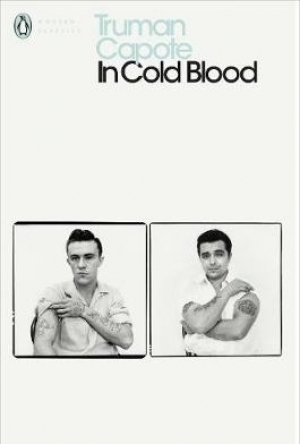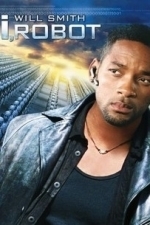Gareth von Kallenbach (968 KP) rated Hitch (2005) in Movies
Aug 14, 2019
Some of the efforts, such as last weekend’s The Wedding Date, never take off, while others, such as Hitch provide a nice mix of romance and comedy which, for the most part, work very well.
The film follows the exploits of urban legend Alex Hitch Hitchens (Will Smith), a self-styled date doctor who specializes in helping men romance the lady of their dreams. Hitch does not provide a dating service but rather helps his clients with their confidence and instructs them on the true way to win and keep and ladies heart.
With his proven results and good rapport with his clients, Hitch is a man in demand, yet due to his policy of privacy and secrecy, to many, the so-called love doctor is little more than an urban myth which is just fine with Hitch. He would rather work in the shadows than bask in the limelight. The adoration of his clients is all he needs. Well, that and a steady supply of ladies to charm at the days end.
Hitch is about to face his toughest case yet in a kind but portly accountant named Albert (Kevin James) who is desperate to win the heart of his wealthy socialite client Allegra (Amber Valletta). When Albert and Allegra start to be seen with one another in public, they catch the eye of celebrity snoop Sara (Eve Mendes), who becomes determined to see what is behind this unexpected couple, which in turn leads her to believe that the so-called Date Doctor is a reality.
If matters were not complicated enough, Hitch starts to see Sara on a social basis with each of them unaware of what the other really does. Sparks fly despite the unflappable and smooth Hitch having one thing after another go awry. Sara really seems to be effecting him, and the more pathetic and hopeless he seems, the more they are drawn to one another.
Instead of turning the film into a whimsical lark, Director Andy Tennant, who helmed the recent Sweet Home Alabama manages to balance comedy with romance, all the while keeping a little bit of drama involved.
Mendes and Smith have good chemistry with one another, as do Smith and James. Smith is very solid and likeable as the charming Hitch. He plays him as a smooth and confident guy, who is actually more reserved and cautious on the inside. The duality of his character is clear without being overwhelming, leaving him not only likeable, but as a character that is easy to root for. The biggest surprise of the film would be Kevin James. His portrayal of Albert is a solid mix of humor and decency. James gets many laughs with Albert’s attempt at being suave, as he portrays a very realistic and believable character who is struggling to find his inner confidence and let his body and voice convey what he has in his heart.
The film does lose momentum during the final twenty minutes when it becomes lazy, resorting to many standard situations that have been done many times before. That being said Hitch as a whole works, and if you are willing to overlook a few blemishes, you may find yourself enjoying the warmth, humor and charm.
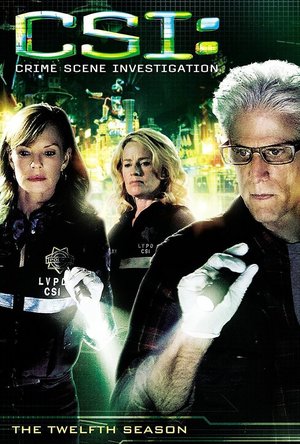
CSI: Crime Scene Investigation - Season 12
TV Season
Catherine and Nick adjust to life working under D.B. Russell, following their demotions, while...

Neoliberalism and Contemporary Literary Culture
Mitchum Huehls and Rachel Greenwald Smith
Book
Neoliberalism has been a buzzword in literary studies for well over a decade, but its meaning...
Hadley (567 KP) rated In Cold Blood: A True Account of a Multiple Murder and Its Consequences in Books
Aug 2, 2020
The novel, which was published in 1965, is an eyewitness account of Capote's visitation to the scene of the murder as well as meetings with the murderers and townspeople- - - a retelling of the crime and aftermath, mostly from the eyes of those affected, by hundreds of hours of interviews and interrogations. The novel, ultimately, was the end of Capote which led him to alcoholism that took his life in 1984.
Like most small-town murders, a tension between residences is created when a well-known and well-liked family of four is brutally murdered, and everyone begins to point a finger at the other: "But afterward the townspeople, theretofore sufficiently unfearful of each other to seldom trouble to lock their doors, found fantasy re-creating them over and again - - - those somber explosions that stimulated fires of mistrust in the glare of which many old neighbors viewed each other strangely, and as strangers." Fortunately, the KBI (Kansas Bureau of Investigation) didn't allow these accusations to keep them from finding the real killers.
" 'Deep down,' Perry continued, 'way, way rock bottom, I never thought I could do it. A thing like that.' " Perry Smith, one of the murderers, confesses to his cohort and partner-in-crime, Richard Hickock, about murdering the Clutter family. "Presently, he said, 'Know what it is that really bugs me? About that other thing[Clutter murder]? It's just I don't believe it- - - that anyone can get away with a thing like that.' And he suspected that Dick [Richard] didn't, either. For Dick was at least partly inhabited by Perry's mystical-moral apprehensions. Thus: 'Now, just shut up!' "
Capote writes clearly of the impact that Smith's and Hickock's past may have played leading up to the murders, mostly focusing on Smith's traumatic childhood. During the trial portion of the book, a psychologist is brought in to point out how the two murderers may not have been responsible for their actions due-to instances in their past - - - a horrific car crash in Hickock's that left him with a lop-sided face and black-out spells, as well as Smith being physically and emotional abused by his alcoholic mother and father. In exploring these traumas, In Cold Blood leaves the impression that these two men were merely ticking time bombs and that the Clutter family, unfortunately, had to pay for it.
The trauma shared by Hickock and Smith help to shape the two murderers into actual human beings rather than monsters throughout the novel: one scene, where we get to read a letter to Smith from his last living sister, readers get to see how he was perceived by his family members, as his sister goes on to degrade him to the maturity level of a child and that she is above him because of that- - -but she also reveals her jealousy of their father loving him more than he ever loved her (despite the excessive abuse). A close friend of Smith's tells him to be careful writing her anymore because he believes that: 'they can only serve to increase your already dangerous anti-social instincts.'
Part of the narrative, too, is the KBI agent in-charge of the Clutter murder, Alvin Dewey: One day while visiting Holcomb's well-known cafe (Hartman's) where Dewey is told he looks awful from weight loss and fatigue - - - Dewey recalls that he had spent: 'two wearying and wasted days trying to trace that phantom pair, the Mexicans sworn by Paul Helm to have visited Mr. Clutter on the eve of the murders.' And then he gets heckled by a local, who wants to know why he hasn't found the people responsible yet,but Dewey simply smiles and walks away, having put up with numerous people being angry that the murders were taking so long to solve.
But it wasn't footwork that got the pair arrested, it was an old cellmate who had given Hickock the idea that there was $10,000 in a safe at the Clutter farm that came forward: (read this on my blog because I had to cut it out since my review was too long!).
Meanwhile, readers also get to experience Hickock and Smith's troubles as they are on the run after the murders which is done masterfully by Capote. And although one would assume that the killers would stay as far away from Kansas as possible, the two end up back there, only to miraculously get out before the police can catch up with them. The pair decide to head to Florida, where, on December 19, 1959, an entire family was murdered in the exact same way as the Clutters; Hickock and Smith both adamantly denied that they were involved with it - - - and back in 2012- - - Hickock and Smith's bodies were exhumed to compare their DNA with a profile found on one of the victim's clothing: they were not a match. The case remains unsolved til this day.
" Presently he[Smith] came across an inner-page story that won his entire attention. It concerned murder, the slaying of a Florida family, a Mr. and Mrs. Clifford Walker, their four-year-old son, and their two-year-old daughter. Each of the victims, though not bound or gagged, had been shot through the head with a .22 weapon. The crime, clueless and apparently motiveless, had taken place Saturday night, December 19, at the Walker home, on a cattle-raising ranch not far from Tallahassee."
Not soon after the pair leave the Florida beaches, they are arrested on what they believe to be parole violations, but it's clear, when the arresting officers are KBI agents that they had been caught for the Clutter murders. " 'Listen good, Perry. Because Mr. Duntz[KBI agent] is going to tell you where you really were...' Midway in the questioning, after he'd[Smith] begun to notice the number of allusions to a particular November weekend, he'd nerved himself for what he knew was coming, yet when it did, when the big cowboy with the sleepy voice said, 'You were killing the Clutter family' - - - well, he'd damn near died. That's all. "
The confession that follows is the most intense part of the book, given in it's entirety, readers finally get to know what happened to the Clutter family that cold night in November, 1959. Smith reveals that he never had the intention to kill anyone in the home, and that when the safe hadn't been found, he had fully intended to leave, even without Hickock, but what kept him there was Hickock threatening to rape Nancy Clutter. Smith states that he hates people who can't control themselves sexually, and that he didn't allow his partner to touch her at all. He also reveals that he thought about killing Hickock afterwards,stating: " no witnesses."
Capote didn't write 'In Cold Blood' until after Hickock and Smith were executed. The amount of interviews, court room appearances, and even witnessing the executions of both murderers shines through in this novel. But the book has also brought about doubters; a handful of people have since come forward to state that Capote's masterpiece is either 'not the full story' or 'completely wrong.' Just as recent as 2017, a man came forward with a 'manuscript' of a book that Hickock was writing, that contained a different confession on how and why the murders took place- - - Hickock states in this unpublished manuscript that a man by the name 'Roberts' had hired him and Smith to kill the Clutters.
Whether or not you believe that Capote wrote the whole truth or some of the truth, this novel is flawless and beautiful. The writing is poetic and the flow of the story keeps moving, page after page, never stopping long enough to bore the reader. I highly recommend this book as a MUST READ for anyone who loves the True Crime genre.
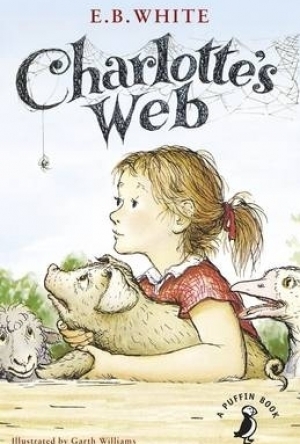
Charlotte's Web
Book
A Puffin Book - stories that last a lifetime. Puffin Modern Classics are relaunched under a new...
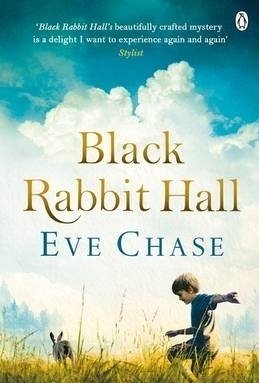
Black Rabbit Hall
Book
One golden family. One fateful summer. Four lives changed forever. Amber Alton knows that the hours...
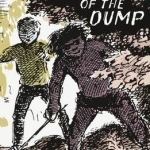
Stig of the Dump
Clive King and Edward Ardizzone
Book
A Puffin Book - stories that last a lifetime. Puffin Modern Classics are relaunched under a new...
Gareth von Kallenbach (968 KP) rated I, Robot (2004) in Movies
Aug 14, 2019
In the film “I Robot” Director Alex Proyas who’s past work includes “The Crow” and “Dark City” tells the tale of a near future where robots have become commonplace and are entrusted to do all manner of tasks ranging from package delivery to waiting table and caring for households. The robots are assured to be safe as they are governed by a set of behavioral restrictors that require them to obey all human commands save for those to harm another human, as robots are not allowed to harm or by inaction allow to be harmed any human.
The film stars Will Smith as Del Spooner, a Chicago Homicide detective who does not trust robots and is highly suspicious of them. The fact that in 2035 there has yet to be one documented case worldwide of a robot ever being involved in a crime is of little concern to Del as he sees the potential for danger in technology that is so widely spread.
Del is in many ways a technophobe as aside from his modern car, he has a retro lifestyle including an old fashioned alarm clock, vintage 2004 shoes, and a fondness for music from the 1970’s. An incident in Del’s past has kept him off the force for a while and has only furthered his distaste for robotics and their growing place in society.
No sooner is Del back at work than an apparent suicide at U.S. Robotics by a friend sets the film into motion. What to all seems to be an open and shut case of suicide only causes Del to become more suspicious. Del soon discovers a new model robot locked in the office of the victim, who flees from crime scene and refuses to obey the orders to halt given to him.
The fact that the robot ignores command given by a human thus violating his central laws of programming is put off as a simple malfunction by Billionaire Lawrence Robertson (Bruce Greenwood), who does not want Del’s suspicions to disrupt his business plans on the eve of the largest rollout of new robots in history. It is explained that the new NX-5 model is about to be released to the public and soon there will be one robot for every 5 humans in the world and with so much invested in this, Robertson places a gag order on Del and the entire police force to forget about the renegade robot and not say a word to anyone.
Naturally Del does not follow this command and he suspects that there is a larger and much more serious threat posed to the public even though everyone around his says that he is paranoid and desperate to find or create any evidence to support his theory that robots are not as safe as everyone believes they are.
What follows is an action packed game of cat and mouse as Del and a U.S. Robotics scientist named Susan (Bridget Moynahan), start to uncover a deeper mystery, once in which the very world they have taken for granted is about to change.
The film is a visual marvel that shows you a fairly realistic view of the future as aside from the robots and futuristic highways, the world of 2035 does not look that much different than today.
Proyas knows that Smith is his star and he does a great job allowing him to carry the picture without allowing the visual effects to dominate the film, though they are spectacular. The futuristic highways and a great chase sequence were highlights of the film and had a surprising amount of tension and drama mixed into what was a solid action sequence.
Smith plays Spooner, as a man with demons yet never ceases to become a sensitive character despite his hard edge. He is a man that is determined to follow his instincts and do what is best for the people he is sworn to protect.
The film does only play lip service to the series of novels by Asimov, but it does tell a very good cautionary tale of human’s interaction and dependence upon technology without becoming preachy or losing site of the message that society must ensure to have a balance between humanity and technology in order to thrive.
If I had to find fault, it would be that many of the supporting roles were fairly bland, as Moynahan was not given much to do aside from play a Damsel in distress and the always solid James Cromwell and Bruce Greenwood were not used nearly enough. That being said “I Robot” delivers everything you want in a summer film and more.

